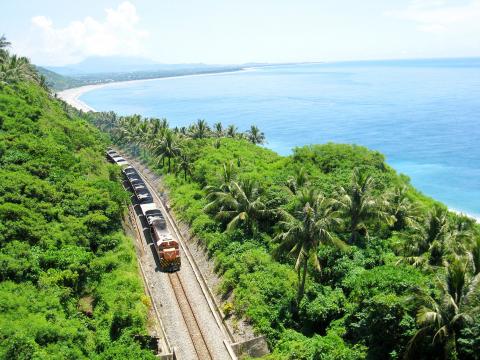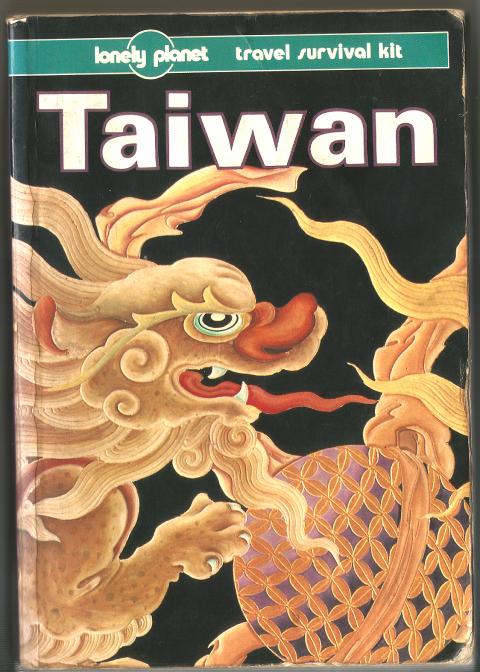I was on a long-distance train starting an intercontinental journey when I learned of Robert Storey’s untimely passing. From what I know of Robert’s own life philosophy I think he would have approved of the setting.
Though I never met Robert, he was a fellow traveler in the most elemental sense, and his life and work shaped my own in strange and subtle ways.
Storey’s guidebooks were among the first I’d ever read, and his stamp was embedded in the first guidebook I ever wrote for Lonely Planet in 2007, an update of a book which he’d originally written. By that time, Robert had become something of a legendary figure, a first-generation Lonely Planet author who had worked on many of the company’s early guides in the pre-Internet days when authors still took notes by hand as opposed to computers. It was an honor to cut my teeth for the company on a project bearing so much of Robert’s creative DNA, to follow (in some cases, literally) in his own footsteps as a travel writer.

photo: Wang Hsiu-ting
Long before I came on board with Lonely Planet, Robert had achieved something akin to legendary status in Taiwan, and was considered by many in the expatriate community an accomplished adventurer and old Taiwan hand. But to me, Robert was an enigma. While I knew him through his reputation and work, our paths had never crossed, either physically or on the Internet. Unlike my own generation of travel writer, Robert didn’t keep a blog, and his presence on social media seemed limited to a few posts a month on Facebook.
A few months back as I began preparing for another book project (a more leisurely literary trip around Taiwan than my usual guidebook output), I put out a few digital feelers in an attempt to connect with Robert. I thought it would be good — fitting, even — to finally meet this person whose professional life had so intersected with my own. Robert got back to me almost instantly — so quickly, in fact, that I felt a bit stupid for not having simply reached out to him through the all-connecting book of faces earlier. I told him a bit about the project, and we made plans to meet up in Taidong in mid-January. While our meeting won’t occur (at least not in this lifetime), I take consolation in the fact that Robert’s contributions to travel, to Taiwan and to the fraternity of travel writers lives on.
— Joshua Samuel Brown, co-author of Lonely Planet Taiwan 7th & 8th edition and several other Lonely Planet guides

photo: David frazier
I went to Macau in 1993, when it had but one casino, a shabby place that got more attention than it deserved from tourists. I was carrying a Lonely Planet guidebook written by Robert Storey and it was invaluable for its usual clear-eyed advice on what to see and miss in the little enclave.
But it also was memorable for a feature Robert had written about gambling. At some earlier stage in his life he’d worked as a slot machine repairman in Las Vegas. His writing about the inner workings of the gaming business was both comical and illuminating, kind of exactly what you want in a great travel guide.
Four years later I began writing for Lonely Planet and in the over 120 guidebooks I’ve worked on since, I’ve often asked myself if a feature I was writing reached the level of Robert’s gambling piece.
— Ryan Ver Berkmoes, Lonely Planet author

Cheng Ching-hsiang (鄭青祥) turned a small triangle of concrete jammed between two old shops into a cool little bar called 9dimension. In front of the shop, a steampunk-like structure was welded by himself to serve as a booth where he prepares cocktails. “Yancheng used to be just old people,” he says, “but now young people are coming and creating the New Yancheng.” Around the corner, Yu Hsiu-jao (饒毓琇), opened Tiny Cafe. True to its name, it is the size of a cupboard and serves cold-brewed coffee. “Small shops are so special and have personality,” she says, “people come to Yancheng to find such treasures.” She

Late last month Philippines Foreign Affairs Secretary Theresa Lazaro told the Philippine Senate that the nation has sufficient funds to evacuate the nearly 170,000 Filipino residents in Taiwan, 84 percent of whom are migrant workers, in the event of war. Agencies have been exploring evacuation scenarios since early this year, she said. She also observed that since the Philippines has only limited ships, the government is consulting security agencies for alternatives. Filipinos are a distant third in overall migrant worker population. Indonesia has over 248,000 workers, followed by roughly 240,000 Vietnamese. It should be noted that there are another 170,000

Hannah Liao (廖宸萱) recalls the harassment she experienced on dating apps, an experience that left her frightened and disgusted. “I’ve tried some voice-based dating apps,” the 30-year-old says. “Right away, some guys would say things like, ‘Wanna talk dirty?’ or ‘Wanna suck my d**k?’” she says. Liao’s story is not unique. Ministry of Health and Welfare statistics show a more than 50 percent rise in sexual assault cases related to online encounters over the past five years. In 2023 alone, women comprised 7,698 of the 9,413 reported victims. Faced with a dating landscape that can feel more predatory than promising, many in

Former Chinese Nationalist Party (KMT) chairwoman Hung Hsiu-chu’s (洪秀柱) attendance at the Chinese Communist Party’s (CPP) “Chinese People’s War of Resistance Against Japanese Aggression and the World Anti-Fascist War” parade in Beijing is infuriating, embarrassing and insulting to nearly everyone in Taiwan, and Taiwan’s friends and allies. She is also ripping off bandages and pouring salt into old wounds. In the process she managed to tie both the KMT and the Democratic Progressive Party (DPP) into uncomfortable knots. The KMT continues to honor their heroic fighters, who defended China against the invading Japanese Empire, which inflicted unimaginable horrors on the